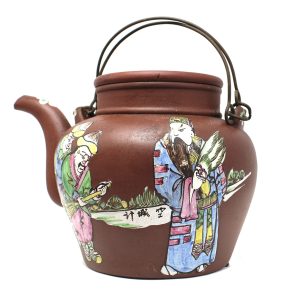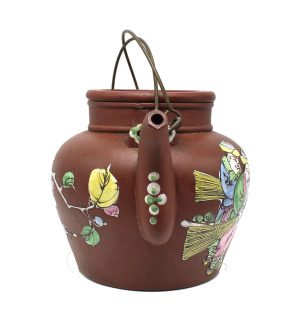Rare Antique Yixing Teapot, Scene from Peking Opera, China (1148)
Original price was: $975.00.$695.00Current price is: $695.00.H: 6” W: 8.5” D: 6.125” | FREE SHIPPING IN CONTINENTAL U.S.
Rare Yixing teapot with brown wash, bright painted enamel scene from Peking opera. Floral are wish for long and healthy life, perfect metaphor for sharing tea loved ones. Kiln seals in body, bottom, lid. For decoration only.


